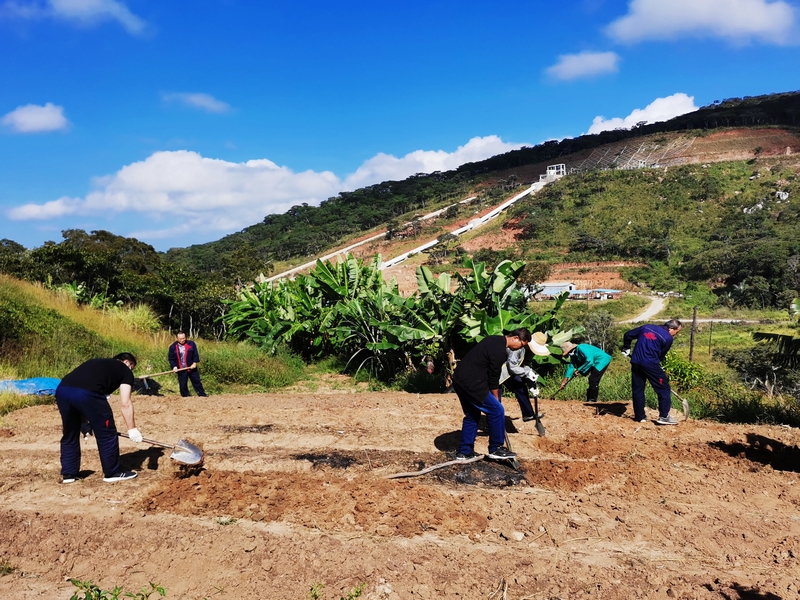CMEC’s Zambia Project Department Cultivates Vegetables in Fighting the Covid-19
The Zambia Lusiwasi Upstream Hydropower Station, undertaken by CMEC, sits in the mountainous area of northeastern Zambia. All living materials of the project personnel need to be regularly purchased from Lusaka, the capital of Zambia, from which is 550 km away, and transported back to the project site after a 10-hour drive.
In March, the covid-19 epidemic spread rapidly in the world. Zambia has already seen confirmed cases of novel coronavirus pneumonia, intensifying the local epidemic prevention and control situation. According to the emergency response plan for epidemic prevention and control formulated by the project, the project department purchased daily necessities that could last for 4 months, but vegetables could not be stored for a long time. Ensuring sufficient vegetable supply has become a difficult problem in logistics during the closed management period. To reduce the risk of infection of personnel due to purchasing in the market, the project department mobilized all employees to carry out reclamation and vegetable planting.
Staff members reclaimed vegetable plots on the hillside beside the site. They used sheep manure collected nearby to bury base fertilizer, raised seedlings, transplanted, built sunshades, watered and weeded in their spare time every day, planting vegetables such as beans, cucumbers, lettuce, pak choi, spinach, shallot, sweet potato seedlings, red and white radishes, etc. After 50-odd days of cultivation, water spinach, beans, shallots can be picked and eaten. The project department is ready to start the second batch of vegetable planting. Using spare time to cultivate vegetables not only guarantees the supply of vegetables on site, but also plays an important role in relieving the pressure and anxiety of employees.
Drawing on the successful experience of Zambia’s project site, Cameroon’s Moken Hydropower Station project has also begun to organize reclamation and vegetable planting. Currently, the vegetable plot has been reclaimed, rapeseed has been sown and sunshades have been built. Fresh vegetables will soon be provided to the staff on site.




